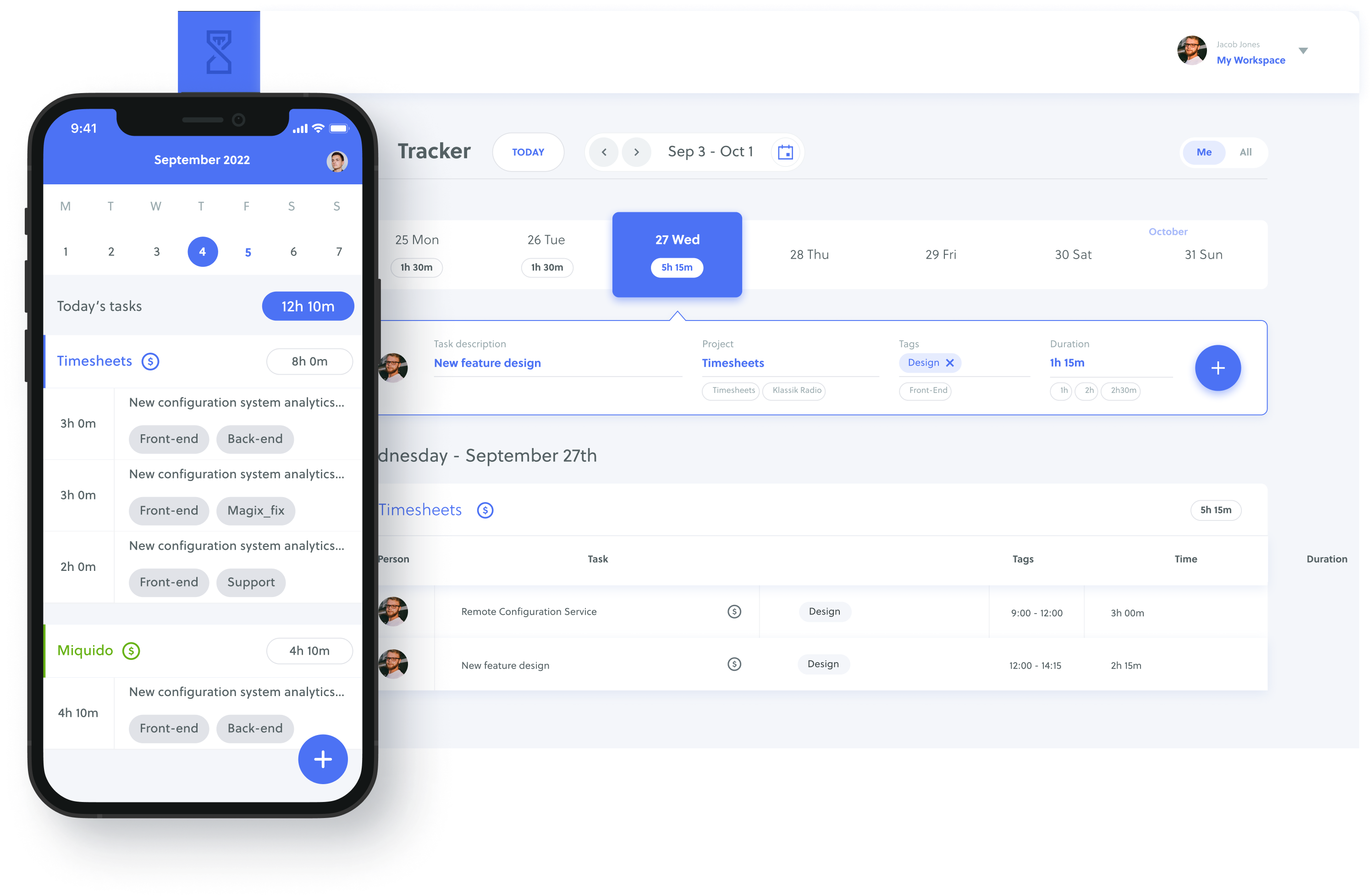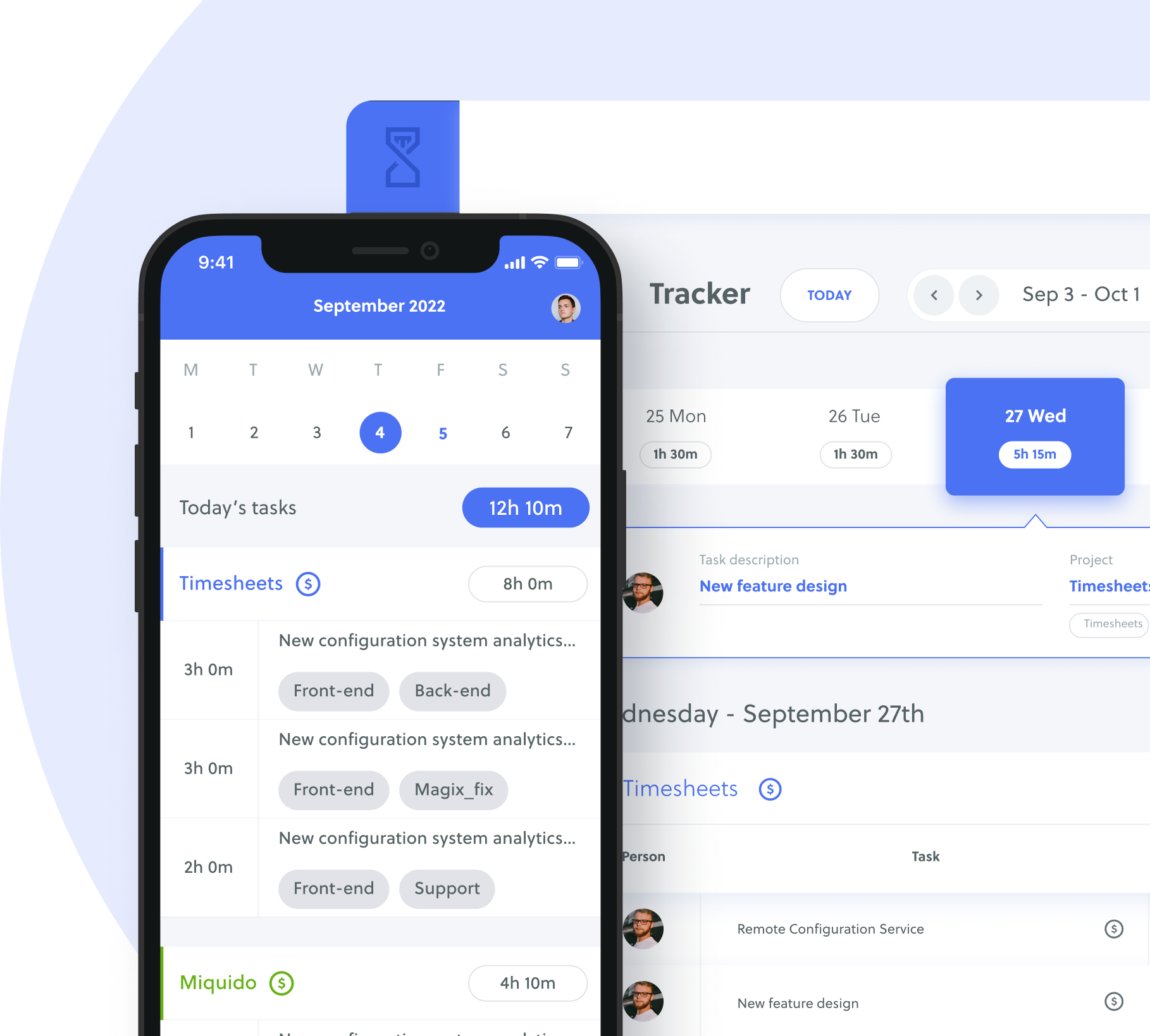Are you someone that loves their job a little too much? Do you find yourself staying up late to work on projects, or maybe even working during your lunch breaks? If so, then chances are you may be a workaholic.
Workaholism is a mental illness that affects many people – in fact, almost half of Americans consider themselves ‘workaholics’. It can cause people to become completely obsessed with their work and have difficulty taking time off or relaxing. It can also lead to anxiety, depression, and other mental health issues if not managed properly.
Many people don’t even realize they are workaholics until it’s too late. That’s why at Quidlo, we’ve put together this blog post to help you understand the signs and symptoms of workaholism, as well as how to manage it if you think you may have a problem.
Ready? Let’s go.
Table of Contents
What Is Workaholism?
Workaholism can be defined as an unhealthy obsession with work, to the point where it starts to negatively impact an individual’s personal and social life. It’s characterized by an inability to disconnect from work, an excessive focus on productivity, and a constant need to be busy.
The term “workaholic” was first coined in the 1970s by Dr. Wayne Oates, a minister and author who struggled with his own work addiction. In his book “Confessions of a Workaholic,” he described workaholism as a “compulsion or dependence on work as an emotional crutch.” Since then, workaholism has become a widely recognized issue, with many people struggling to strike a healthy balance between their professional and personal lives.
It’s important to note that being a hard worker and being a workaholic is not the same thing. While it’s great to be dedicated and focused on your job, it’s important to also make time for rest and relaxation. Workaholism can lead to burnout, decreased productivity, and negative impacts on physical and mental health. So it’s important to find that sweet spot and make sure you’re taking care of yourself, too!
👉 Related: 50+ Workaholism Facts and Statistics
What Causes Workaholism?
So why is someone a workaholic? What’s going on in that person’s brain that makes them keep going and going?
The answer is complicated, many experts believe workaholism may be caused by a combination of genetics, environment, and personality traits. Here are the most common causes:

Perfectionism: Someone who is a perfectionist may feel like they need to complete every task perfectly, no matter how long it takes. For example, they may stay at the office late every night to make sure a presentation is absolutely perfect, even if it means sacrificing time with friends and family.
Low self-esteem: Someone with low self-esteem may use their work as a way to feel accomplished and valuable. That could take the form of taking on extra projects or working long hours in an attempt to prove their worth to their boss or colleagues.
Fear of failure: Someone who is afraid of failing at their job may become a workaholic as a way to avoid the possibility of failure. This could be a refusal to take time off or delegate tasks to others because they feel like they are the only ones who can do the job right.
Stress: Someone who is experiencing stress in their personal life may turn to work as a way to cope. A common example of this is when people throw themselves into their work to distract themselves from problems at home.
External pressures: Someone may feel pressure from their boss or colleagues to be constantly productive and available. For example, their boss may expect them to be available for work at all times, leading them to work long hours or check their work emails late at night. Others may have it built into their family culture that a strong work ethic is necessary for success – but when this is coupled with mental health neglecting environment, then the balance is tipped – leading to workaholism.
Lack of work-life balance: Someone who has a hard time disconnecting from work may struggle to find a balance between their professional and personal lives. For example, they may feel like they always need to be available for work and may bring work home with them on the weekends or during vacation.
It’s important to recognize these patterns and find healthy ways to manage them, rather than letting work consume every aspect of your life. Taking regular breaks, setting healthy boundaries around working hours, and taking time to nurture your personal relationships can all help you avoid the pitfalls of workaholism. With awareness and self-care, you can find the balance you need to stay productive and healthy.
What Are The Symptoms of Workaholism
Workaholics may display a number of different symptoms. It’s important to be aware of the signs so that you can identify if you or someone you know is struggling with workaholism.
As shown in a study of 2,000 employed Americans by the New York Post, here are the most common symptoms of workaholism:

Work comes first
For many workaholics, their job takes precedence over their personal life, including their relationships, leisure activities, and self-care. They may even worry about work on their days off. In fact, over half of workaholics (54%) prioritize work above all else.
For example, rather than taking a weekend off to spend time with family, they may decide to stay at the office and finish a project.
Long hours on the clock
Workaholics may find themselves putting in longer hours than necessary or required, sometimes at the expense of their personal lives. In fact, almost half of workaholics (46%) report being the first to arrive and the last to leave at work. And a similar number of people admitted to being too busy to take breaks from work, even on vacation.
💡Pro tip: Track how much time is going behind work with a time tracker and set work hours to maintain a healthy balance.
Struggling to set boundaries
Workaholics may have difficulty saying no to additional tasks or setting limits on their workload. This can lead to an unhealthy imbalance between work and their personal lives.
What does this look like?
Constantly checking emails or taking work calls outside of regular business hours. A whopping 48% of people admitted to answering emails and taking calls late at night or on the weekends, while a depressing 39% said they do it first thing in the morning.
Feeling obligated to always say yes to additional tasks or projects, even if it means sacrificing personal time and well-being
Bringing work home with them on the weekends or during vacation
Answering phone calls on work-related matters at the dinner table
Put your foot down. Setting boundaries is essential to avoiding burnout, so make sure you know where your limits are and communicate them clearly. Taking regular breaks, setting healthy boundaries around working hours, and taking time to nurture your personal relationships can all help you avoid the pitfalls of workaholism.
Difficulty delegating tasks
Workaholics may have trouble trusting others to complete tasks or may feel like they are the only ones who can do the job right. This can lead to an overwhelming workload and a lack of work-life balance. But the truth is, delegation can be a great tool for managing work stress.
What you delegate depends on the nature of your work, but generally speaking, it’s helpful to break down complex tasks, delegate mundane tasks and responsibilities, and share the workload with other people.
A hard time taking breaks
Taking breaks from work can help you reset and stay energized, but workaholics may find it difficult to disconnect from their job. In some cases, they may even work throughout their vacations or have a hard time switching off while on break.
As a fix, consider the following solutions:
The Pomodoro Technique: This is a time management technique that suggests breaking down tasks into 25-minute intervals with 5-minute breaks in between. It helps to establish focus and productivity, and makes it easier to take breaks.
Related: The Best Pomodoro Apps and How to Use The Technique
Set boundaries: Create clear rules and regulations on when and how you will disconnect from work. This helps to create a sense of structure and allows for more free time. This could mean putting your phone on silent mode or turning off notifications during certain hours.
Use that vacation time: Did you know that only a quarter of employees take all their vacation time? Make sure you’re taking time off when you’re entitled to it. Use your vacation days to relax and recharge, and try to leave work at the office.
Find a hobby: Engage in activities outside of work that you enjoy. This can help you disconnect from work and give you something to look forward to when you’re not at the office.
A need to be perfect
Workaholics may have high standards for themselves and may feel pressure to be perfect in their work. This can lead to excessive time spent at work and a lack of time for rest and relaxation.
Here are some pro tips to combat the incessant need to be perfect:
Set realistic goals: Don’t try to do everything perfectly. Instead, set achievable goals for yourself and focus on making progress rather than striving for perfection.
Learn to let go: It’s okay to make mistakes. Instead of dwelling on them, learn from them and move on.
Practice self-compassion: Be kind to yourself and remember that nobody is perfect. Don’t beat yourself up over small mistakes or setbacks. Think about your main goal, and how much this insignificant setback matters to it.
Seek support: It can be helpful to talk to someone about your perfectionistic tendencies and work on ways to overcome them. A therapist or coach can be a great resource.
Workaholism Effects
Many people don’t bother resolving the issue of workaholism because they don’t realize that it can have serious effects on their physical health, mental well-being, and overall life satisfaction. But it’s no secret that workaholism is bad news.
The cumulative research overwhelmingly supports that it’s not just bad for the workaholic, but also their family and even their employer. It was also found that workaholism is strongly linked to job stress, work-life conflict, and burnout.
Take a look at the diagram below:

A check mark sign (✅) means there is a significant positive relationship between workaholism and something else. A negative sign (❌) indicates a significant negative relationship, and “ns” means there is no significant relationship.
Aside from relationships and health, which we’ll get into in the next sections, here are some other effects of work addiction.
Decreased productivity: Despite working long hours, workaholics may actually be less productive than their counterparts due to burnout and fatigue.
Financial strain: Workaholism can lead to overspending on things like coffee, takeout, and rideshare services, as well as lost opportunities for financial planning and growth.
Legal issues: In some cases, workaholism can lead to legal issues, such as ignoring labor laws or breaching contracts.
Professional consequences: Workaholism can lead to missed deadlines, errors, and conflicts at work, which can have negative consequences for a person’s career.
Burnout: Constant work and lack of rest can lead to burnout, which is characterized by feelings of exhaustion, cynicism, and a lack of accomplishment.
The Impact of Workaholism on Relationships
When it comes to relationships, people who are overly focused on their jobs tend to prioritize work over their loved ones and may miss important events or milestones. This can lead to tension, arguments, and even distance between the person and their family and friends.
Strained relationships: A workaholic may cancel plans with their partner or family at the last minute due to work commitments, leading to feelings of resentment and disconnection.
Limited quality time: Workaholics may have little time for their personal relationships due to the demands of their job, leading to a lack of quality time with loved ones. For example, they may only have a few hours a week to spend with their partner or children, and that time may be filled with stress and fatigue rather than meaningful connection.
Communication breakdown: If you’re too busy or distracted by work to communicate effectively with your loved ones, it will inevitably lead to misunderstandings and conflicts. They may also have trouble fully listening or being present in conversations due to their focus on work.
Isolation: A workaholic may isolate themselves from their personal relationships in order to focus on work, leading to feelings of loneliness and disconnection. They may also cancel social plans or avoid making new connections in order to prioritize work. This can lead to a lack of support and a sense of isolation.
Workaholism and Health Issues
Workaholism can have a significant impact on a person’s physical and mental health. Here are a few ways it can affect your health:

Physical health problems: Workaholism can lead to physical health problems such as stress, fatigue, and a lack of exercise due to a lack of time for self-care.
Mental health issues: Workaholism can also contribute to mental health issues such as anxiety, depression, and burnout.
Poor sleep: Workaholics may have trouble sleeping due to the demands of their job, leading to fatigue and decreased productivity.
Lack of work-life balance: Workaholism can lead to an unhealthy imbalance between work and personal life, which can affect a person’s overall well-being.
It’s important to recognize the potential impact of workaholism on health and make an effort to maintain a healthy balance between work and the rest of your life. This can help you preserve your physical and mental health and well-being.
Parting words
Workaholism is a serious problem that can have significant negative impacts on a person’s physical and mental health, their relationships, and their career. It’s essential to recognize the signs of workaholism and take steps to combat it in order to maintain a healthy balance between work and life.
It can be eye-opening to see how much time you’re really putting behind work by using a time tracker like Quidlo, which can help you better understand your work patterns and create a healthier balance between work and life.
It’s also important to prioritize self-care and make time for the things that bring joy and relaxation into your life. Taking breaks, getting adequate sleep, engaging in regular exercise, and spending quality time with loved ones are all essential elements of well-being.






